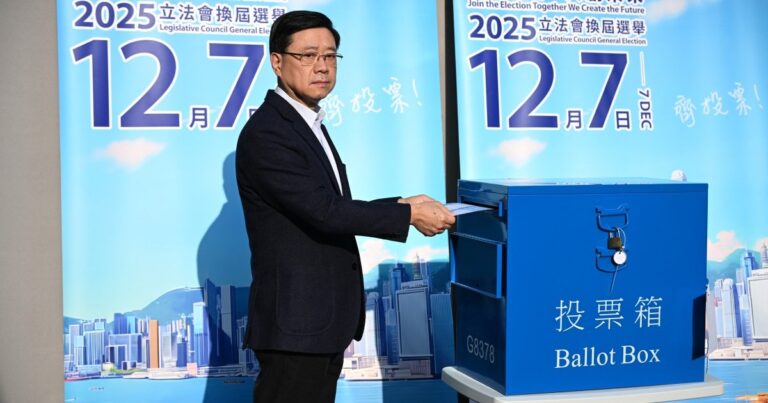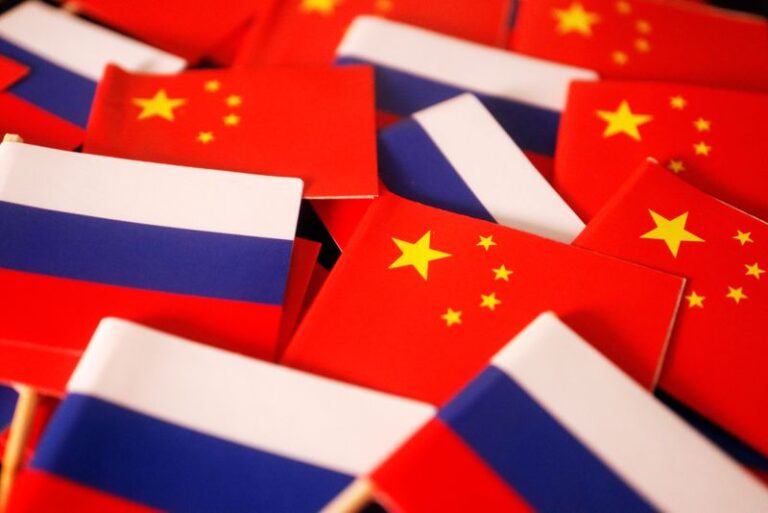Hong Kong Chief Executive John Lee urges the public to come out and vote amid expectations of a low turnout.
Voters in Hong Kong are heading to the polls to elect new lawmakers under China’s “patriots only” rules, though government efforts to drive turnout have been overshadowed by anger over the city’s handling of a major deadly fire.
Polls opened early on Sunday across the autonomous Chinese city to select 90 legislators, though only 20 of those seats are directly elected.
Recommended Stories
list of 3 itemsend of list
The election is only the second time since the city overhauled the electoral system to ensure that only those deemed “patriots” can run for office.
Political campaigning for the polls was abruptly paused in late November, after a blaze tore through the housing blocks of Wang Fuk Court in northern Hong Kong, killing at least 159 people.
Al Jazeera’s Laura Westbrook, reporting from Hong Kong, said “there had been some questions” whether the voting should go ahead in light of the tragedy, believed to be the world’s deadliest residential building fire since 1980.
“But Hong Kong’s chief executive, John Lee, said the vote should go ahead, as a way to maintain stability, and that he needed the newly elected legislature to help push through reforms as well as ensure the recovery and reconstruction efforts can move ahead quickly,” Westbrook said.
Lee had earlier announced a judge-led “independent committee” to investigate the fire, which devastated seven apartment blocks that were undergoing renovations.
He has also urged the people of Hong Kong to take part in the polls, saying their ballots represented reform and support to the fire victims.
On Sunday, a sombre-looking Lee was seen casting his vote in the city.
As of this week, police have arrested 15 people from various construction companies on suspicion of manslaughter.
Police also reportedly arrested at least three people for sedition for making public criticism of the government in the wake of the fire.
Among those detained was 24-year-old student Miles Kwan, who handed out flyers calling for government accountability. Kwan was later reported to have been released.
Earlier this week, a university in the city also shut operations of its student union after messages were posted on campus expressing condolences and urging justice for the victims of the fire.
Legislative elections in Hong Kong used to entail boisterous clashes between pro-Beijing and pro-democracy camps, with the latter often winning about 60 percent of the popular vote.
But in 2020, Beijing imposed a sweeping national security law after the city was roiled by huge and sometimes violent pro-democracy protests. The first contest held under the new rules later that year saw a record low turnout of less than 30 percent.
Some pro-democracy lawmakers have been jailed, including as part of a subversion case that concluded last year, while others resigned or fled Hong Kong.
Sunday’s race will once again be devoid of the two largest pro-democracy parties after the Civic Party disbanded in 2023 and the Democratic Party said it is winding down.
Before the fire, authorities had blanketed much of the city in promotional material and extended the operating hours of polling stations.
About a third of the outgoing cohort of lawmakers, including veterans such as Regina Ip and legislature president Andrew Leung, are not seeking another term.












